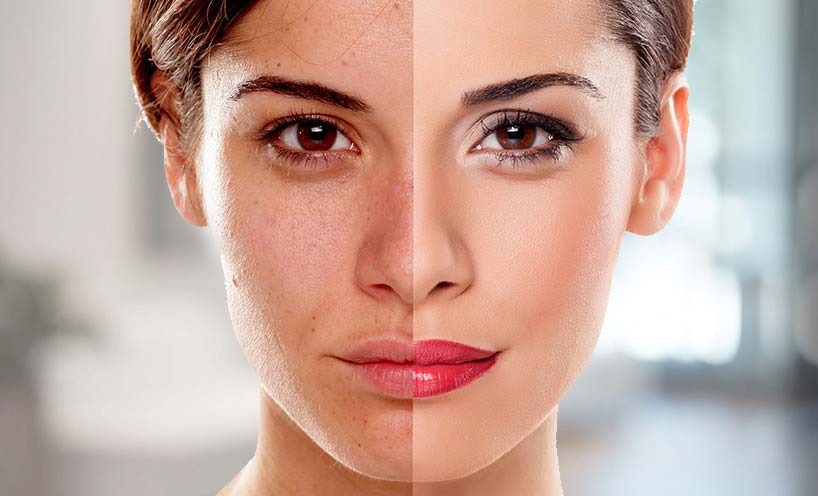Aging skin tends to become drier due to reduced oil production and decreased ability to retain moisture. Age related changes in melanin production can result in an uneven skin tone of blotchiness or dullness. As the weather changes rapidly common skin problems mostly faced by the elders. Even as liver spots or sun spots, these are areas of hyperpigmentation caused by sun damage over time. Also elastin production decreases, skin loses its elasticity leading to the formation of wrinkles and fine lines. With age, skin becomes thinner and more fragile, making it more prone to bruising and tearing. Fat loss in the face can lead to a hollowed appearance and the formation of sunken areas particularly around the eyes and cheeks. Skin aging is a complex biological process influenced by combination of endogenous or intrinsic such as genetics, cellular metabolism and hormone and metabolic processes, exogenous or extrinsic, chronic light exposure, pollution, ionizing radiation, chemicals and toxins factors.
Signs of aging skin:
- Thinning
- Sagging
- Wrinkling and the appearance of age spots
- Broken blood vessels and areas of dryness
Common skin problems:
- Acne is the most common skin condition in the country
- Atopic Dermatitis. Eczema is most common among children, but it can also present for the first time in adults
- Psoriasis
- Rosacea
When does aging start?
The first signs of aging start to become apparent on the surface of the skin. Fine lines appear first and wrinkles, a loss of volume and a loss of elasticity become noticeable over time. Our skin ages for a variety of different reasons.
What foods cause aging?
- Spicy foods
- your skin is the largest organ in your body and everything you eat affects it
- Sodas and energy drinks
- Frozen dinners
- Alcohol
- Processed meats
- Fried foods
- Baked goods
What body parts get bigger with age?
The parts of the human body that continue to grow as people age are the ears, nose, hair and nails. While the hair and nails continue to grow because they are made to be cut or broken, the ears and nose grow for different reasons.
Four ways of aging
- Metabolic agers or people whose immune systems age fastest
- Immune agers
- Kidney or nephritic agers
- Liver or hepatic agers
Shows aging first:
Eyes, this is another top answer when asked what the first signs of aging are. Again, thin skin contributes to the wrinkles you’ll start to see in your 30s around your eyes, but also your muscles can weaken and cause droopiness.
How do stop skin from ageing?
- Protect your skin from the sun every day
- Apply self-tanner rather than get a tan
- If you smoke, stop
- Avoid repetitive facial expression
- Eat a healthy, well-balanced diet
- Drink less alcohol
- Exercise most days of the week
- Cleanse your skin gently
There is much debate among researchers about the mechanisms that contribute to the ageing process. However, it is widely accepted that damage to genetic material, cells and tissues that accumulates with age and cannot be repaired by the body is the cause of the loss of function associated with ageing, aging means growing older. You could say that your glamorous grandparents make aging look easy. The process of getting older, especially as people reach middle age and beyond, is called aging, and it’s also an adjective that describes someone or something going through this process.

